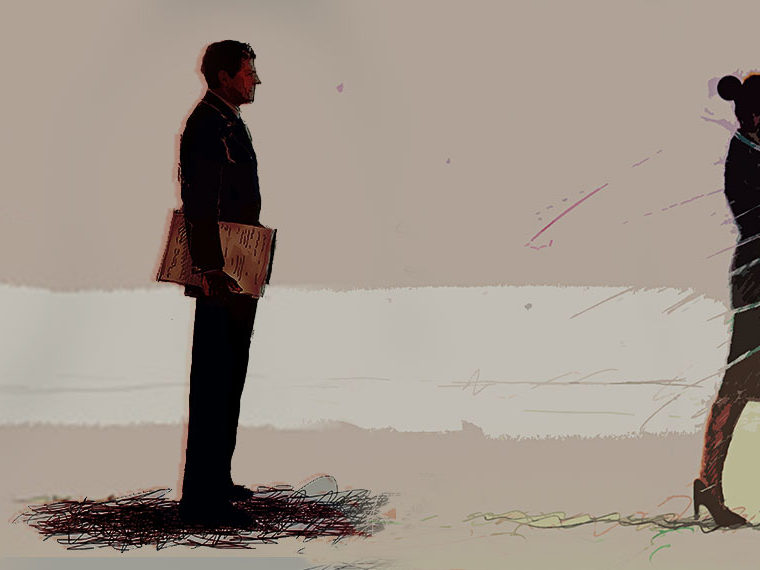A culture that valorized revenge among pre-industrial herders resonates today
The centuries-old notion of a shepherd gently directing livestock across vast expanses of land belied a far harsher reality. Without the static protection of fences, herders moved their animals across open areas that made them vulnerable to thieves.
Twenty-six years ago, social psychologists Richard E. Nisbett and Dov Cohen introduced the theory that herding cultures developed a robust appetite for revenge and violence as a way to defend their assets.
“(A) stance of aggressiveness and willingness to kill … is useful in announcing a herder’s determination to defend his animals,” they wrote in their 1996 book, “Culture of Honor: The Psychology of Violence in the South.”
Opt In to the Review Monthly Email Update.
A working paper extends the culture-of-honor theory to the study of modern-day civil conflict across the globe. In the paper, published by the National Bureau of Economic Research, Boston University’s Yiming Cao, Harvard’s Benjamin Enke and Nathan Nunn, University of Bonn’s Armin Falk, and UCLA Anderson’s Paola Giuliano find that “populations that historically relied on herding to a greater extent have more conflicts today.”
The researchers notably melded four disparate data sources — ranging from ancient folklore to tracking of modern-day conflicts — to work through their hypothesis that the herding dependence of a culture’s ancestors can be a predictive tool for measuring the appetite for revenge and violence among its 21st century descendants.
The researchers started with the Ethnographic Atlas, published in 1967, which includes robust herding data on more than 1,100 historical ethnic groups. They then drew on prior research that provided a framework for quantifying the extent to which each group was economically dependent on herding. The researchers also mined a newly available database of folklore motifs represented in nearly 1,000 ethnolinguistic groups for mention of “culture of honor” concepts related to violence, punishment and revenge.
As the scatterplots below show, the stronger a group’s ties to herding, the more its folklore referenced violence and punishment.
The Long Psychological Shadow of Herding Aggression
The team then tapped the Uppsala Conflict Data Program — a globally recognized clearinghouse for organized violence data from 1989 to 2016 — to measure whether modern-day cultures with a deep herding history are prone to revenge and aggression.
To better match the geographic data of the UCDP with their study of ethnic group behavior, they drew on prior research by Giuliano and Nunn that enabled them to extrapolate ethnicity by focusing on the languages used in each conflict area.
They indeed found a correlation between the intensity of ancestral herding in more than 200 countries and current appetite for conflict. This finding extended across state and nonstate conflicts and “one-sided aggression by armed groups.”
And the stronger the herding connection among ethnolinguistic groups, the longer the periods of conflict and the more deaths that came along with the propensity for more conflict. The authors note this finding is merely “suggestive” among many factors that drive conflict across different countries, but they note it is consistent with their hypothesis that countries with a deep history of herding are more conflict prone.
The Past Is Prologue for Herding Cultures
The team used another data set to study whether cultures with a strong historical tie to herding view revenge as a means of modern-day conflict management.
The Global Preferences Survey published in 2018, collected data from more than 80,000 individuals across 76 countries who represent 90% of the world’s population and income. The data set included three questions that measured attitudes (on a scale of 0 to 10) toward revenge and punishment as a means to address unfair behavior:
- How much do you agree with the following statement: If I am treated very unjustly, I will take revenge at the first occasion, even if there is a cost to do so.
- How willing are you to punish someone who treats you unfairly, even if there may be costs for you?
- How willing are you to punish someone who treats others unfairly, even if there may be costs for you?
Among ethnic groups with a strong link to ancestral herding, they found a correlation that provides the “first piece of evidence that a tradition of herding affects basic psychological tendencies related to reciprocating unkind actions.”
The research identified countries, such as Saudi Arabia and Turkey with both high levels of historical herding and of propensity for revenge; and those with low levels of past herding, such as Romania and the Philippines, and low levels of propensity for revenge.
For scholars of civil war, these findings suggest that the cultural heritage of herding may be a telling factor in which cultures are more apt to embrace violence and revenge today. It also may help inform the approach taken by stakeholders engaged in brokering peace in cultures and regions experiencing civil discord.
Featured Faculty
-
Paola Giuliano
Professor of Economics; Chauncey J. Medberry Chair in Management
About the Research
Cao, Y., Enke, B., Falk, A., Giuliano, P. Nunn, N. (2021). Herding, Warfare, and a Culture of Honor: Global Evidence. doi: 10.3386/w29250






